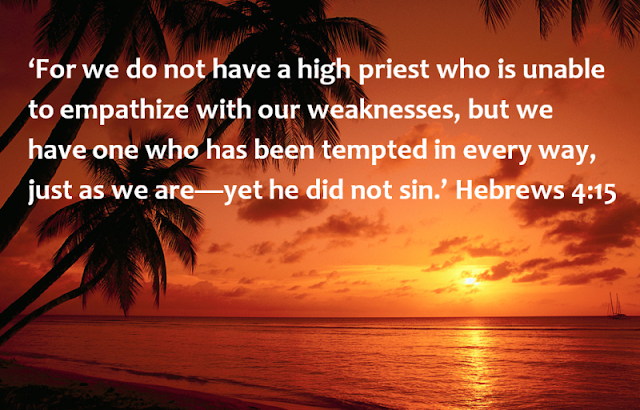Please note - this article is about major depressive disorder, which is different from the most common form of depression, which has a variety of different causes, and is a normally an isolated, one-off episode.
Do Not Blame Ourselves
A reaction we may have to major depressive disorder’s return is to blame ourselves for its return, asking ourselves questions like, “What have I done to cause this relapse?”
When depression was forcing its way back into my life in 2010, I kept going through this issue, wondering if I was doing too much, not exercising enough, and so on. Here’s such an entry from my diary:
3.11.10 – Here I am, making lists again.
I believe the primary cause of what I’m going through now is a combination of the following:
1. Was not eating properly for a few months due to throat problems, and lost 6kgs
2. Add to that getting sick repeatedly throughout winter, perhaps seven illnesses in a row...
3. As a result of getting sick so many times, I did not exercise regularly.
4. Pushed myself way too hard practising the the piano.
5. Though of course, it could be my damaged, epilepsy ridden brain simply misfiring, with no rhyme or reason at all.
However, major depressive disorder, which is also known as recurrent depression, is called that because it re-occurs, and does not need anything to trigger it. Instead, it is a malfunction of the brain and nervous system, and new episodes may trigger from time to time, as sufferers can have several episodes during their life. We can have months, years, or decades free of it before it triggers again.
Succumbing to another episode of major depressive disorder in 2010 was none of my doing, it was simply another episode caused by the disorder. And it followed the same pattern it took back in 1989 - 1994. Therefore must not blame ourselves or feel guilty when it returns. We are not a failure. We cannot prevent such episodes, but by responding to them correctly, for example by trusting entirely in God, keeping our eyes fixed upon Jesus, using Dr Claires Weekes techniques of facing, acceptance, learning to live with it, and letting time pass; medication, counseling, exercising, etc, we can reduce the severity and duration of the episode.
Do Not Feel Guilt if Previously Dealt with Fears Return
When I suffered an emotional/mental collapse during my first major depressive episode in Dec 1989, a fearful thought/doubt entered my mind that became an obsessive fearful thought, which terrorized me night and day, week after week, for months. I received significant relief when the fear was addressed by my counselor, but it continued to plague me until the end of that depressive episode. After I recovered, it popped up a few times but was easily dispatched. So to all intents and purposes, it had been dealt with.
Several months after the onset of this new depressive episode which began in 2010, I suffered another emotional/mental collapse, and that same fear, which had previously been dealt with, resurrected, and with almost as much power as it had back in 1989-94.
One reaction to the return of previously dealt with fears is to feel guilty, to think we have regressed to falling prey to those fears again, perhaps even thinking our walk with the Lord is going backwards. However, we have to remind ourselves that the only reason these fears have returned is because of depression. For when we are depressed, our mind typically loses its flexibility and resilience. If we were not depressed we would have got rid of the fears with ease.
So we must must not feel guilt if any previously dealt with fears return, but remember that those fearful thoughts will reduce in severity and duration as we recover from this depressive episode.
However, we may need to receive prayerful/Biblical counseling or therapy to help us deal with and overcome those fears. At the very least, we need to speak to someone wise to help us see the true perspective about what we fear, and learn to see things as they see them.
“There is now no condemnation for those who are in Christ Jesus,” Romans 8:1
Maintain Hope
Regardless of how bad a new major depressive episode becomes, we must NOT lose hope. We need to keep reminding ourselves that we recovered from it last time, and we will recover from it this time.
We need to remember that our hope in Jesus gives us the strength we need to persevere and endure whatever trials come our way. ‘We continually remember before our God and Father your work produced by faith, your labor prompted by love, and your endurance inspired by hope in our Lord Jesus Christ.’ 1 Thessalonians 1:3
Set Realistic Recovery Goals
We also need to set ourselves realistic goals for recovery if we enter a new episode of recurrent depression. Unrealistic goals create time pressure, which only makes things worse. It took me five years to recover from a major depressive episode last time, so when I was diagnosed with it again in 2010, I mentally set aside five years to recover from it again. That means five years of doing less, of reduced responsibilities, of never feeling guilty for not doing as much as I was before the onset of this depressive episode. And Jesus understands exactly what we are going through, and is there to comfort and strengthen us.
‘For we do not have a high priest who is unable to empathize with our weaknesses, but we have one who has been tempted in every way, just as we are—yet he did not sin.’ Hebrews 4:15

Tidak ada komentar:
Posting Komentar